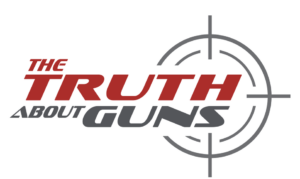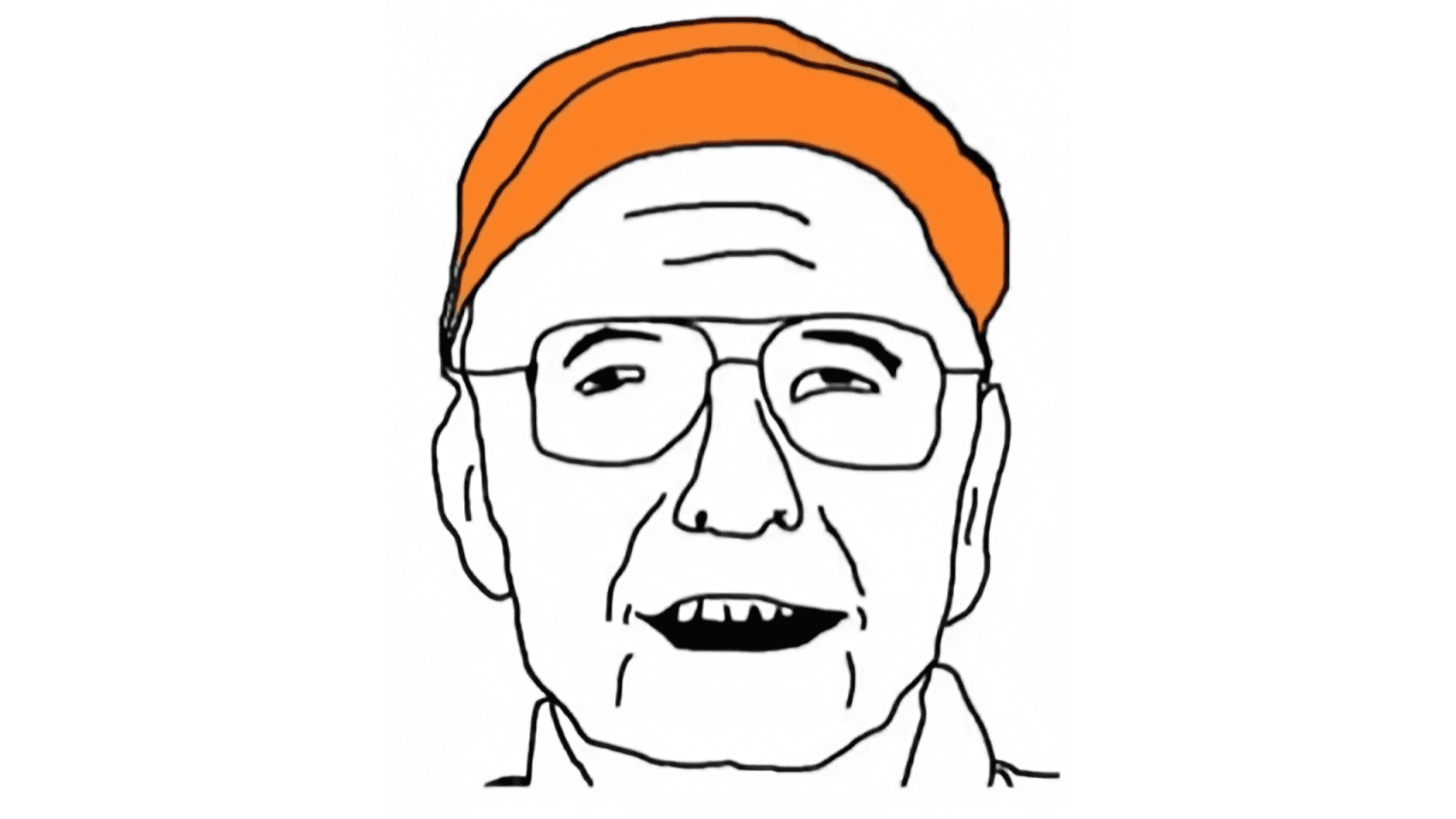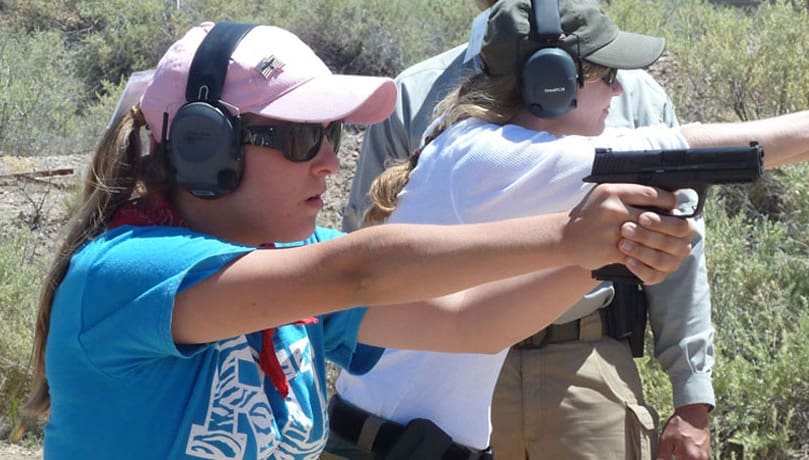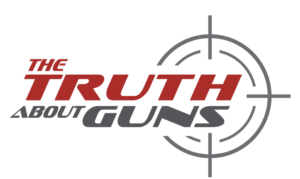By John Eliyas
My father wasn’t big, physically, only 5’3” and 135 lbs. He didn’t graduate from high school. Most of his life he worked as a machinist in a foundry. It wasn’t until I got older that I began to understand there was a deeper current running through him. I grew up in a northern Ohio town on the lake. My father worked the night shift; my mom was a home-maker. We didn’t have much, but my folks managed to send my two sisters and me to parochial school. We had what we needed, sometimes what we wanted. One weekend, when I was 8, my dad and I visited my uncle Joe on Catawba Island, we then took a leisurely drive to Port Clinton and Camp Perry. This was my first introduction to the matches . . .
Wow, was I impressed! Steely-eyed soldiers shooting off hand with .45s. Wind was whipping off Lake Erie, often to the detriment of the marksmen. The loud reports of weapons firing down range. This, to an eight year old, was almost an infinite distance to the target: “Dad, how can they hit it so far away?” He would just smile and keep walking, talking to a few of the men.
Before we left we stopped and paused at the memorial for the 192nd Tank battalion, Co. C. The Plaque, shaped like the State of Ohio was placed on the plaza as a tribute to members of Company C, 192nd Tank Battalion on the forty-fourth anniversary, in 1984, of their mobilization. Thirty-two of the forty-two men who left Port Clinton for Fort Knox, Kentucky in November 1940 were with the unit on the Bataan Peninsula. Only a few survived the Bataan Death March and 3 1/2 years as Prisoners of War.
He traced his bother Steve’s name on the plaque. We then drove home, for the most part in silence.

As I grew older I learned a few things about my dad. He enlisted at 17 in the Army. He fought in the European theater from D-Day to the Battle of the Bulge, but was captured by Germans in a small village in France. He was liberated by the British at the end of the war.
He re-enlisted and found himself in the Pacific, too late to save his brother who died of dysentery at Camp Cabanatuan. Ending up with MacArthur in Japan, he joined the 11th Airborne, 505 PIR.
Eventually he found himself in the Korean theater. He was awarded three Bronze Stars with oak clusters for valor. Wounded twice, he received two Purple Hearts and the 505 was awarded two Congressional Unit Citations. He was an expert marksman in rifle, submachine gun and hand grenade. He taught me to shoot one handed.

When I turned 30 he gave me his .45. He carried it in two wars and receiving it was a humbling experience. I have shot it many times, but now it comes out of the safe only rarely. It is one of my most prized possessions.
I must say however, that my father was so much more than a soldier. He loved life and loved to laugh, often telling me that he got bucked down to corporal on more than one occasion. He was a father, brother, husband and son. He epitomized the greatest generation.
On this Memorial Day I ask my fellow TTAGers to remember him as well as those who came before and after. Unassuming, he plugged away for most of his civilian life as a machinist, never boasting about his war years. I had thirteen more years with my dad after he gave me his 1911, and I miss him to this day.











I still have my grandfathers M1 Carbine. He carried it in the Philippines and finally to Japan. I “borrowed” it when he passed because their were plans brewing to sell it off. Not happening.
I will keep him in my prayers. He is the typical US veteran, fought hard for his country and yet was humble about his time in service.
God bless your father and the other men that served our country in times of strife. I lost my uncle too, Albert R., age 19, 11Bravo, 317th Inf., 80ID, in Sept. of 1944, at the Mosel River crossing in France, by German Arty.
I am so proud to be American right now… Thank you for your story.
I am humbled.
Pleased to meet your father, and next time I’m imbibing, I’ll raise a glass to his memory.
Thanks for sharing…
My Dad was also in WW II and a small man. He was badly injured and suffered “shell shock” (PTSD). He never got over his war experience and he refused to talk about it. He had a deer in the headlights look when something surprised him until the day he died. We never knew what he did in the war but because he was the best shot with a rifle I ever saw, we suspected he might have been a sniper. Based on his experience and the experience of my uncles, classmates and friends who went to Korea and Vietnam, I don’t think anyone comes back from war without it having a emotional impact on them.
My dad too was a M/Sgt US Army 21 years in grade and rank. I attended his last formation at Bad Kreuznach Germany in 1962 when he retired. He was in combat in Germany and Korea. He was wounded twice and received the bronze and silver star along with the obligatorily purple hearts. He too had the deer in the headlights look when surprised. Dad never did get back from the war. Our family was dysfunctional and ended in divorce when I was 12. He drank a lot. Dad did however teach me how to shoot and we spent lots of time hunting and fishing. Those are the times I value.
I ended up doing my 20 in the US Navy. I was lucky that I did not deploy to the Nam so I missed combat during my tenure.
and to your Uncle…lest we forget.
The cruel, criminal and needless death of his uncle multiplied by millions is why I feel no symphathy for the Germans in Dresden or the Japanese in Hiroshima and Nagasaki. Let ’em burn.
Yet what was amazing my father had no real enmity to the Germans or the Japanese, being able to separate those they occupied from the fascists in Europe and the Nationalists in Japan.
Yea because every citizen is guilty the crimes their government comits… right? Or else they would renounce their citizenship… right?
Ignorant comment of the day.
Ignorance was the Japanese and Germans assuming that they would win the war and it was therefore okay to commit barbarity after barbarity without fear of reprisal.
PJ, yes, the citizens are responsible for what their .gov does. If a soldier cannot claim he was just following orders how is the citizens that funded his war, fed and equipped him less guilty for following their orders?
I agree. Pretty ignorant comment and some strange psychological rationalization to boot.
https://en.wikipedia.org/wiki/Rationalization_(psychology)
What an amazing keepsake! I hope it will always be part of your family. Thanks for sharing.
Fantastic tribute – Thank You!!
Thank you for sharing your treasures with us. Reminds me of my Grandfather. A stoic man, who perhaps suffers from PTSD. A great man. Gruff, but inside is a man with more generosity and heart than I will probably ever posess. I am grateful he is still alive teaching us all today.
You honor the sacrifices of those such as your father who have gone before you, and his spirit lives on in you. Well done, sir.
Always retell his story. Their story. We can not forget. We must not forget.
Thanks for sharing this story. I appreciate the pics as well.
Well done. Very well done. He’s on Fiddler’s Green.
Nice entry-winner so far.
Great post.
Screw all that sentimental crap, how much do you want for that gun?
/sarc
Your dad made you rich beyond money, my friend.
Yeah, it is a great 1911. Love it. Some things you can never part with.
Reminds me of the distinct Honor and Privilege I was blessed with when I met LtCol. Matthew Urban, who was awarded the Congressional Medal of Honor for his service and sacrifices during WWII. I was the Training NCO for the Base Honor Guard at K. I. Sawyer AFB in the mid-80s, and drew the duty to post and retrieve the Colors at the dedication of a school in his name. Google his name, as there is not enough room for his story here.
The gentleman in this story is in the same company of heroes.